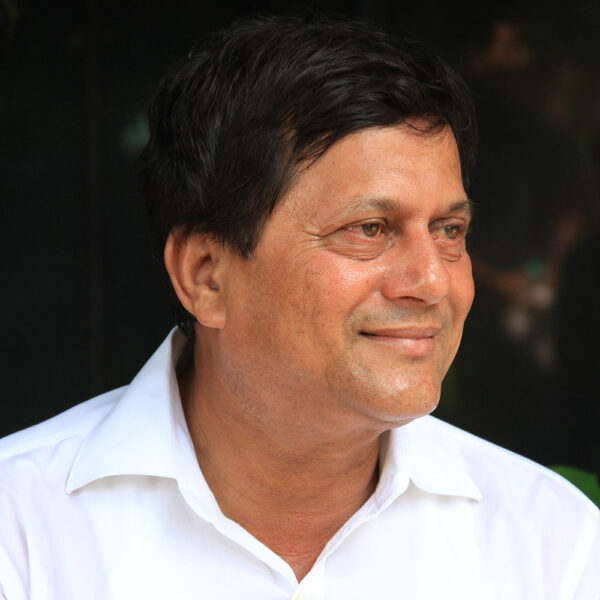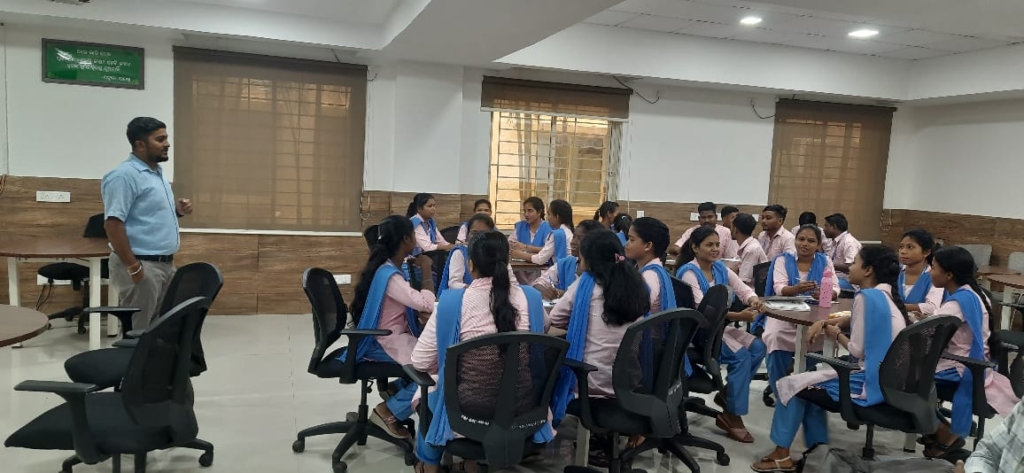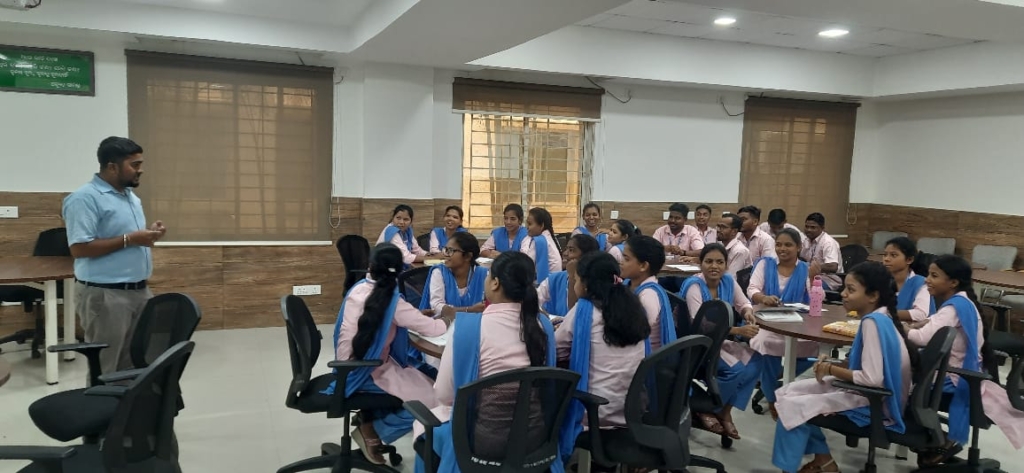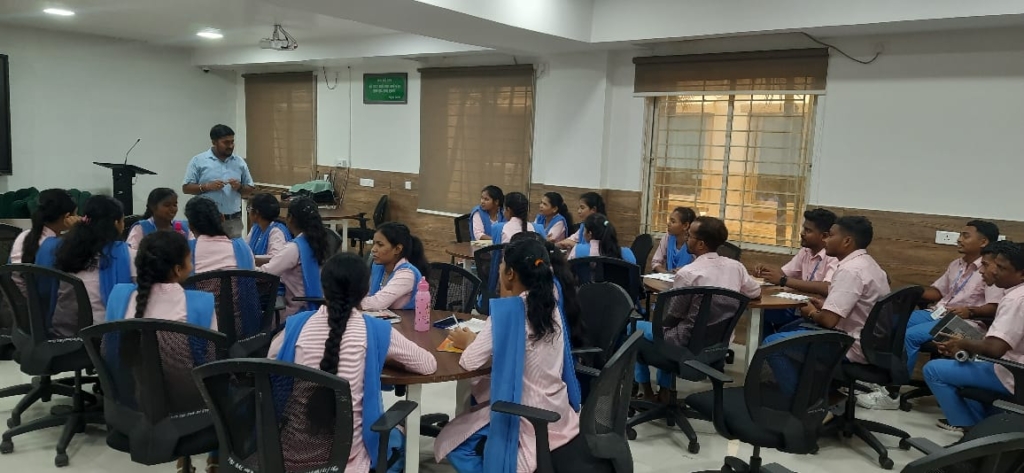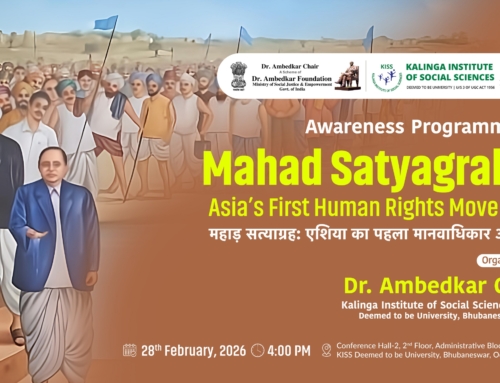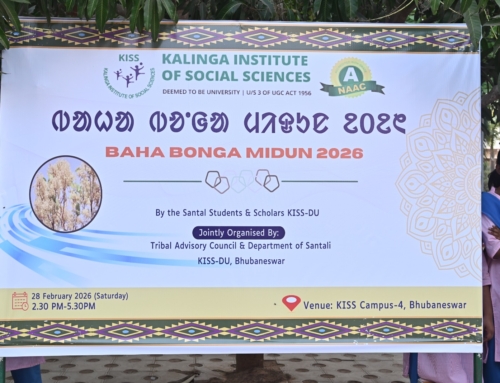The School of Comparative Indic Studies and Tribal Science, in collaboration with the Centre for Indigenous Science and Technology at KISS-DU, Bhubaneswar, organized an engaging session on “Converting Innovation into a Startup” under the banner of Innovation Institution Council (IIC), Ministry of Education (MoE), Government of India.
The session aimed to inspire and equip students with the knowledge and strategies required to transform innovative ideas into viable startups. The expert speaker for the session was Dr. Bhaskar Das, Manager of Bio-Innovation at KIIT-TBI, who shared his insights and expertise on the entrepreneurial journey. He started the session by explaining the fundamentals of entrepreneurship and how innovation serves as the foundation for building a successful startup. He emphasized on the need for recognizing potential innovative ideas, and how these ideas can be nurtured through proper planning and market research. He highlighted certain real-world examples of entrepreneurs of Odisha like Ritesh Agarwal, CEO of OYO rooms, Jayanti Mahapatra, Founder and CEO of Manikstu Agro, Aseem Misha of Prantae Solutions and other startups that emerged from small-scale projects and how they scaled to become successful businesses.
Dr. Das outlined the various stages of converting an idea into a startup, starting from ideation, prototyping, and validation. He spoke in detail about the importance of conducting market research, identifying the right target audience, and refining ideas to meet market demand. Dr. Das elaborated on how incubators support early-stage innovators in overcoming initial hurdles by offering access to funding, networks, and technical expertise.
Dr. Das, being an expert in bio-innovation, provided deep insights into how bio-innovative ideas, especially in the fields of health, agriculture, and environmental sustainability, can be transformed into successful businesses. He highlighted the specific challenges and opportunities within this sector and encouraged students to think about solutions to pressing societal problems through bio-innovation.
The session concluded with an interactive Q&A session where students actively engaged with Dr. Das. Many of the students raised questions regarding the initial steps of starting a business, the challenges of funding, and the role of mentorship in ensuring the success of their ideas. Dr. Das patiently addressed all queries, providing clarity on how to move forward from the ideation phase to creating a scalable and sustainable business.
With 30 enthusiastic student participants, the session successfully provided practical knowledge on how to convert innovative ideas into startups. The event helped students understand the importance of incubators like KIIT-TBI and encouraged them to take the first steps in their entrepreneurial journeys. The session served as a valuable platform for fostering innovation and entrepreneurship at KISS-DU.

